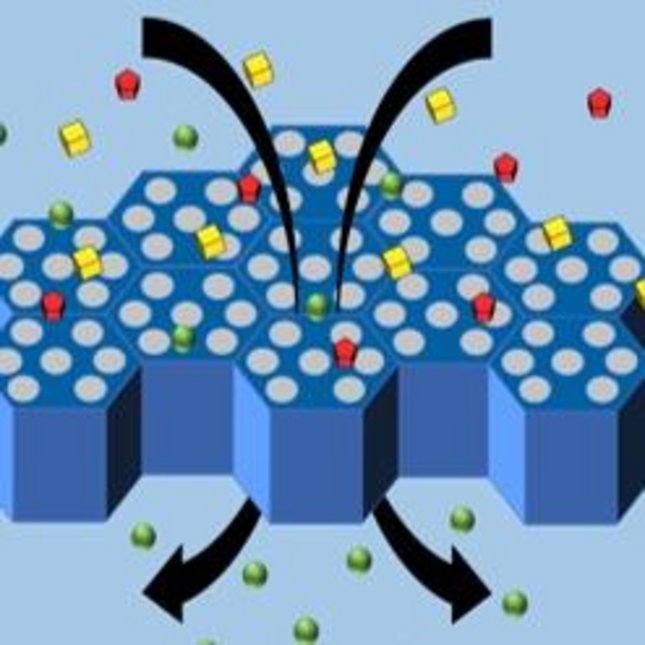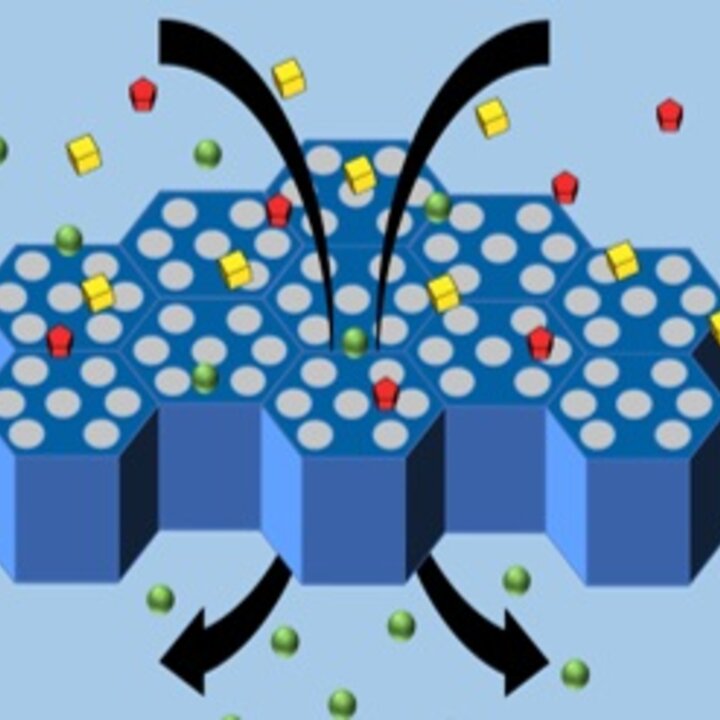
Customized mass transport through porous media requires the precise control over pore size, orientation of percolating channels and the porosity gradient of a material. We use materials chemistry to synthesize isoporous structures through the controlled assembly of functional polymers. This involves for example the development of isoporous membranes based on liquid crystalline polymers for the selective recovery of minerals and nutrients and alignment of percolating channels in mixed matrix materials. Physical approaches based on phase separation of polymer solutions are used to induce porosity gradients throughout the thickness of a material for the development of polymer membranes with thin selective top layers for water and gas purification and treatment or electrodes with gradual porosity to enhance convective transport combined with large surface areas for energy conversion and storage.
Customized mass transport through porous media requires the precise control over pore size, orientation of percolating channels and the porosity gradient of a material. We use materials chemistry to synthesize isoporous structures through the controlled assembly of functional polymers. This involves for example the development of isoporous membranes based on liquid crystalline polymers for the selective recovery of minerals and nutrients and alignment of percolating channels in mixed matrix materials. Physical approaches based on phase separation of polymer solutions are used to induce porosity gradients throughout the thickness of a material for the development of polymer membranes with thin selective top layers for water and gas purification and treatment or electrodes with gradual porosity to enhance convective transport combined with large surface areas for energy conversion and storage.
